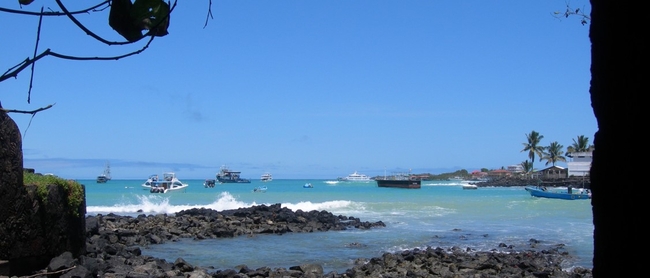Summary
In the second phase of Humboldt-Tipping, we build on our understanding of the Humboldt Upwelling System (HUS) to assess its vulnerabilities in the face of global change. For this, we explore locally-adapted future scenarios (derived from the Shared Socioeconomic Pathways) and their potential impacts on fisheries, aquaculture and coastal communities in the HUS.
Humboldt-Tipping II has three main objectives:
1) to consistently evaluate customized HUS scenarios across multiple scales, 2) to explore adaptation and transformation options for key resource use activities (artisanal & industrial), and 3) to actively communicate and discuss our findings through various outreach formats.
Our interdisciplinary team, consisting of natural and social scientists from Germany and Peru, is working closely with local actors to better understand the complex interplay of the ecological, social, and economic dynamics in the HUS. By combining modeling efforts and stakeholder insights, we aim to develop governance recommendations that promote the resilience of coastal communities and resource use activities in Peru.
These efforts are essential for ensuring food security and promoting sustainable fisheries, consistent with Sustainable Development Goals 2 and 14.
ZMT leads project part TP4: Participatory Social-Ecological Modeling and Management Strategies
ZMT is involved in working packages 5 and 6, with a focus on nearshore and pelagic systems along the Peruvian coastline. Within this framework, ZMT researchers are engaged in a range of participatory modelling approaches, using methods and tools such as trophic models, social-ecological networks, mental models and qualitative mathematical modelling. The overarching goal of these efforts is to shed light on the dynamics of the local social-ecological system under climate change scenarios.
Project partner |
|---|
|
Prof. Gerardo Hector Damonte Valencia (Pontificia Universidad Catolica del Peru) Dr. Lotta Kluger (Kiel University) Prof. Michael Flitner (University of Bremen) Dr. Jorge Tam (IMARPE) Dr. Daniel Grados (IMARPE) Paul Tacuri (IMARPE) Ing. Martín Salazar (IMARPE) |





